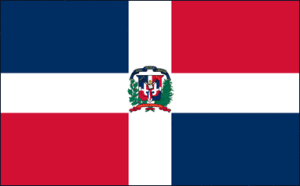By: Alexandra Paredes
A recent law passed in the Dominican Republic, leaves anyone born after 1929 to non-Dominican parents stripped of their citizenship. A concept like being stripped of citizenship is foreign to many of us American citizens who take it for granted. However, to hundreds of thousands of poor and lower social class Dominicans, their right to be in their homes is about to be taken away.
This is a testament to the deeply embedded racism that forms a very large part of Dominican culture. Being black in the Dominican Republic, automatically associates you with being Haitian. Haiti and the Dominican Republic have had a long history of tensions, beginning in the 19th century when the Dominican Republic was under Haitian control. Since the independence, the Dominican Republic experienced a series of very racist political leaders. Trujillo “cleansed” the border of tens of thousands of people believed to be Haitian.
The earthquake that caused so much destruction in Haitian and parts of the Dominican Republic happened, and many people were left without homes, families, or jobs to go back to. Large quantities of Haitians sought refuge with their neighbor.
Lack of health care and improper conditions to give birth drive many expecting mothers across the border to give birth and receive treatment.
A consequence of this history and the lack of gainful employment and healthcare in Haiti have led to a very large number of people settling in the Dominican Republic. The vast majority of these people were unable to receive documentation to legally live in the DR, rendering them and even their children born in the country stateless.
We move from this to today, where people, real people, are being stripped of a citizenship that is not so easy to get. A child of two Dominican parents in another country can become a citizen much more easily than someone who is Haitian or of Haitian decent, but is born in the Dominican Republic.
250,000 people have started the application process, but only 300 have actually received permits. Of those 250,000 people only 10,000 met all the requirements to be considered for a permit. These odds are almost stacked against these people, many of whom have lived in the Dominican Republic for a majority of their lives.
According to the army official in charge of the deportation process, General Ruben Dario Paulino Sem, the process has begun as of June 18th. He has also been overseeing the construction of camps, or shelters, where Dominicans “suspected” of being of Haitian descent would be housed. However, the country’s foreign minister states that deportations will not actually begin until the beginning of August. This leads us to believe that the Dominican government plans to hold these people in these camps for two months.
The idea that these camps are for people suspected of being of Haitian descent leaves a very open window for the Dominican government to use this law subjectively. With the history of racism in the country, it is disconcerting that the government holds such power in deciding who may or may not stay in country.
The Dominican Republic is in violation of more than one UN treaty on human rights, which states that no state party to the treaty should strip a people of their citizenship. That being said, considering the world has such a painful history with keeping people of a specific race or culture in internment camps, our world leaders should be reacting more strongly to the situation. What will the world do?

